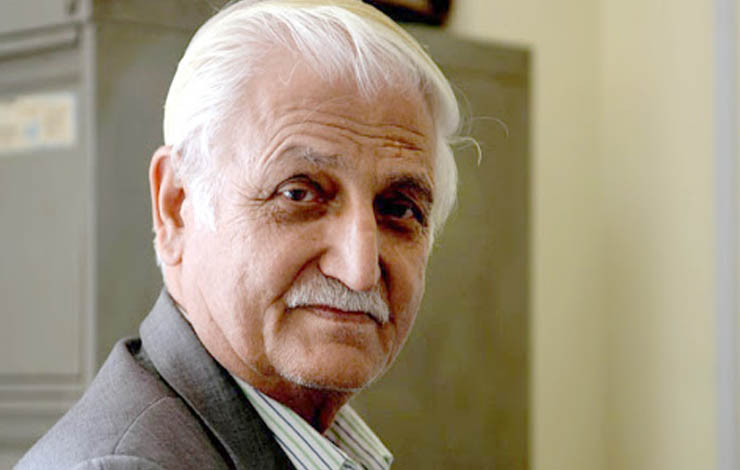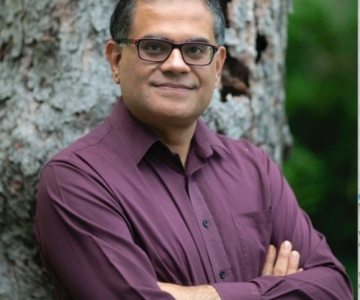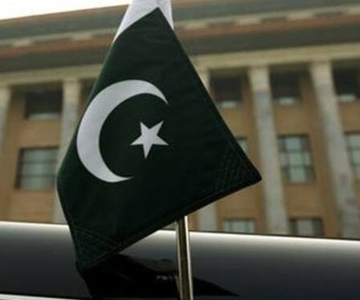Pakistan People’s Party’s former spokesperson Senator Farhatullah Babar, in his farewell speech, created history by stating some bitter facts about Pakistan’s dysfunctional democracy. What he said is widely known but few say it and that, too, on the floor of the Parliament. This is why his historic speech will be remembered and will become a moot point for future historians.
Babar’s address to the Senate last week prime facie dealt with recent developments in Pakistan but the themes he raised are long standing, unresolved issues that have inhibited Pakistan’s democratisation, undermined its federal structure and led to dysfunctional governance. From foreign policy to the delivery of basic services, the state seems unable to uphold public interest and govern beyond the confines of narrow, factional interests.
Babar’s first message was clear: selective accountability does not work. Politicians’ answerability, once again, dominates public conversations these days and has led to another round of judicial activism. The media disinforms by telling that the courts and the military are serious about accountability. The reality is that holding politicians to account has been a tried-and-tested method since Pakistan’s inception and has been conveniently used to undermine democratic development.
From upholding the coups of Ayub, Zia and Musharraf to sanctioning religious exclusion, judicial verdicts have constrained the potential for the evolution of a democratic and pluralistic state
Gen Ayub Khan promised that he would cleanse the political system in the 1950s. Laws were framed to ‘disqualify’ politicians and many were ousted from the political arena. All military rulers followed this path. The civilian governments of the 1990s also carried this agenda forward. But we have been unable to address corruption, which by all standards has grown and become a norm in social and political life. A key reason for this has been the insularity of state institutions such as the judiciary and the military and (to some extent the civil bureaucracy) from any form of meaningful accountability. Senator Babar wanted the unelected institutions to be held accountable. But his own party, struggling to make a deal with the establishment, shot down the idea. The lesson of our history is that piecemeal answerability does not work.
Second, Farhatullah Babar reminded everyone that Pakistan’s constitution guaranteed parliamentary supremacy. Since the restoration of the judges in 2009, the superior courts have tried to appropriate ‘public interest’ and in their judgments have indicated that they are somehow answerable to people. In that rhetorical assertion of their independence they have also guarded their institutional interests. For instance, parts of 18th amendment related to parliamentary oversight were struck down by the Supreme Court. And more recently, legislation on who can be a party head has been effectively nullified. The more grievous implication of this verdict has been the curtailment of the right of political assembly. When courts start to circumscribe the political process it is an ominous signal.
Farhatullah Babar also protested about the “judicialisation of politics and politicisation of the judiciary”, and how it could undermine the democratic system. While it’s true that the judiciary of 2018 is far more autonomous than previously, its recent decisions concerning former PM Nawaz Sharif have turned out to be contentious. Even if the honourable judges are freely adjudicating today, the history of judiciary’s role in Pakistan’s politics is at best unfortunate. From upholding the coups of Ayub, Zia and Musharraf to sanctioning religious exclusion, judicial verdicts have constrained the potential for the evolution of a democratic and pluralistic state.
Take the Asghar Khan case. The evidence of deep state’s meddling in elections and political engineering was clear; yet, the courts did not bother to check on the implementation of their orders. This is in stark contrast to the case of Nawaz Sharif where courts that do not even fall under the jurisdiction of SC have been directed to adjudicate within six months. The larger issue here is that the Supreme Court’s own dignity is at stake. If it becomes a political player then it would have to face the wrath of its opponents as is happening now with the ongoing PMLN-judiciary clash. The Chief Justice has been defending court decisions in his public speeches. It is rather extraordinary. Needless to say, judiciary’s involvement in politics is as bad as politicians badmouthing the judges.
The fourth forewarning by Farhatullah Babar was about the cleavage between the de jure and de facto state. Once again, everyone in Pakistan knows who wields ‘real’ power, that is, the deep state. In the past the two found a way of veiled accommodation. However, in recent times due to the PMLN-establishment duel, the dyarchy has become unmanageable. For instance, the ‘de jure’ government could not dispel last November’s protests by Barelvi clerics in part because the military was reluctant to confront ‘our own people’. Ultimately the ‘de facto’ state — represented by a senior general — had to ‘underwrite’ an agreement between the government and the protestors. This rupture, if it continues, is going to weaken parliamentary democracy and the overall capacity of civilian institutions tasked with law enforcement under the constitution. Ten years in a democratic transition this is reason to be deeply concerned.
Finally, Babar pointed towards the delay in devolution of powers by the Centre to the provinces. He rightly warned against rollback of the 18th Amendment and reminded that undermining provincial autonomy would be disastrous for the country. He alerted that the “smaller provinces may demand parity in the National Assembly, as we had also demanded parity with East Pakistan before it broke up . . . what we need to do is to protect Pakistan and it’s the job of Parliament . . .”, he advised. Pakistan’s biggest and most forgotten tragedy was the 1971 dismemberment. It was an outcome of constant denial of rights to the majority province. Recent developments such as the deep state’s meddling in the Balochistan government and recentralisation under the PMLN government are worrying to say the least.
The political class is divided and — thanks to the military-judiciary-media combine — somewhat discredited today. Horse-trading in the Senate elections and the PPP and PTI competing to win the favour of establishment are reminiscent of the 1990s. And we all know how that turbulent decade ended. While a direct military coup is not on the cards, there is ample room for coup by other means.
And it has already begun.
Published in Daily Times, March 11, 2018: An outgoing senator has warned the political elites. Are they listening?



